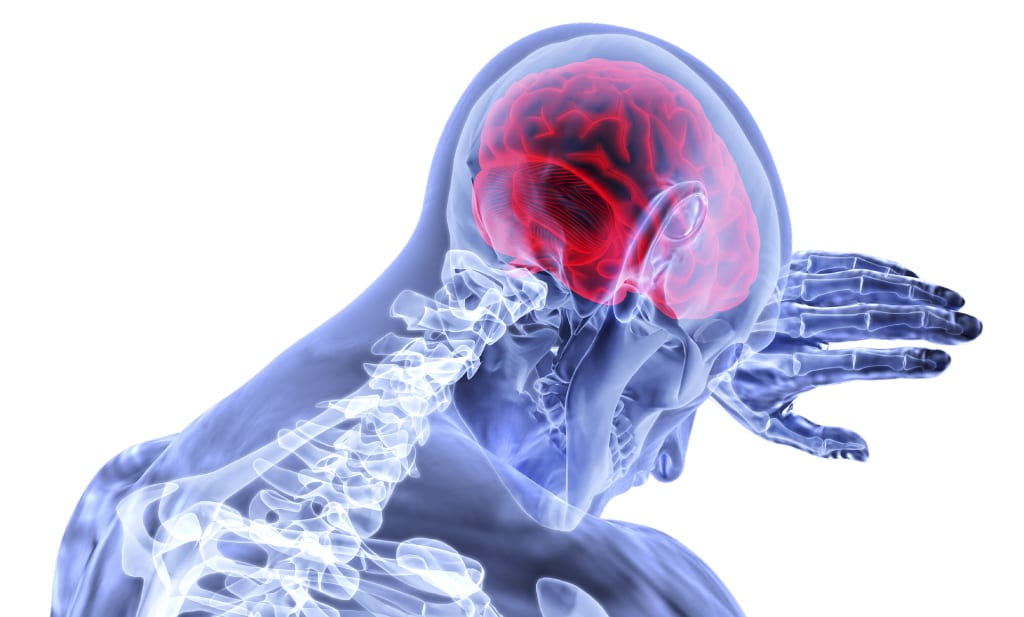Cognitive Behavioral Therapy Has Emerged as the Gold Standard in Psychotherapy
At the Intersection of Psychology, Neuroscience, Brain Scans, and BS

The title of this post was lifted directly from the above linked piece by Markam Heid. Markam happens to be one of the best science(ish) writers regularly publishing on the web and specializes in health related topics. Typically he covers subjects which have gotten some traction with the general public and about which much misinformation and disagreement abounds. He is one of the more fair and balanced writers in this area (he would say nuanced I guess given he has written a book with that title) and goes to great lengths to present all sides in the debate. At the same time he generally does a good job of pointing out inconsistencies and pseudoscience when they are used in support of a particular position on any given issue. I mention all that as a preface because I do think in this case he gives way too much credit to the “think yourself healthy” camp without saying nearly enough about the holes that abound in the “empirical evidence” that exists supporting that position. Incidentally I happen to agree with the hypothesis (I am not sure there is enough evidence yet to call it a theory) that they way you think can impact your health positively and negatively.
That said just because I believe it to be true does not mean I can’t take it to the woodshed, and in my opinion believing something to be true is the best reason to try and prove it false.
Therefore, specifically I want to focus on cognitive behavioral therapy because it is the “thought focused” method highlighted in the article as “one of the most effective remedies for….” a host of conditions and mental health disorders. As one who has ‘participated’ in CBT I can speak from experience when I say (in my opinion) it is utter and complete bullshit. It is as rigorous as a first grade entrance exam with ‘procedures’ and ‘guidelines’ and ‘rules’ for the ‘therapy’ that are so vague as to encompass almost any practice the CBT expert(s) wants them too. The only sustained concentration CBT involved for me was on how much time and money I wasted being exposed to it. I have little doubt CBT (whatever it is) works for some because it is different for everybody, totally and completely different. In fact it is whatever your therapist or you want it to be. Under conditions of infinite variability some of those variations will probably help some people. I understand there are ‘studies’ which ‘prove’ that CBT is effective. I am being lazy and don’t feel like pulling any of the papers from the primary literature which purport to show that this is so. Rather than read a few of these to quickly identify methodological flaws so large I could drive a truck through them I will accept that they are legitimate and well done. The only thing said paper(s) would ‘prove’ is that (the form of) CBT as practiced on the group of people involved in the study, at the time of the study, under the exact conditions of the study, was ‘effective,’ however that was defined for the study. This is a problem that befuddles almost all psychological research but is particularly problematic in the case of a ‘practice’ as ill defined, broad in scope, and variable as CBT.
As you would probably expect the neuro’science’ brain scan boys are all over this gravy train with groundbreaking studies such as “fMRI Shows OCD Improves With Cognitive Behavioral Therapy.” Using a methodologically flawed technique to show that one ill defined and variable (and still theoretical) disease state (OCD) ‘improves’ a term so loaded with nothingness as to make the vacuum of space look like Avogadro’s number, when another ill defined and highly variable treatment (CBT) is used. No doubt the sample size was huge as is typical of brain scan studies. Let us have a look n=43 people with OCD and 24 without. You may be scoffing but that is actually massive compared to most brain imaging experiments. I am not going to even bother to ask about the overloading of disease state.
“When the scientists compared the “before” and “after” brain scans of the participants who received CBT, they saw an increase in connectivity — which can signify greater communication — between the cerebellum and the striatum, and between the cerebellum and the prefrontal cortex. The scans of people without OCD did not show any changes; and among the people with OCD who waited four weeks for their treatment, there were also no changes during the waiting period, demonstrating that the changes in the brain do not occur spontaneously with the passage of time.” The article is linked below.
fMRI Shows OCD Improves With Cognitive Behavioural Therapy
I am way to lazy to pull this paper so I am going to make some rather large assumptions but something tells me this “increase in connectivity” is not all it is cracked up to be. The very next statement suggests that this is basically a bullshit guess when it says that this thing, whatever it is, can signify greater communication.” Of course it can, or it could, or it might, or might not, or who knows, whatever it does or does not signify is greater communication. And everybody knows greater communication is great, just plain great, I mean really fantastic, so fucking great. Seriously? Greater communication? That could mean any of ten thousand different things and please explain why that is considered a good thing by default. Maybe my brain doesn’t want or need ‘greater communication’, maybe it would be better with less, yet more narrow and focused, communication. Maybe my brain thinks greater communication sucks. Ouch, mereological fallacy committed in three sentences in a row. Now I am writing like a neuroscientist.
And there you have it, brain scan proves CBT cures OCD. Yeah! Go Team Science!
About the Creator
Everyday Junglist
Practicing mage of the natural sciences (Ph.D. micro/mol bio), Thought middle manager, Everyday Junglist, Boulderer, Cat lover, No tie shoelace user, Humorist, Argan oil aficionado. Occasional LinkedIn & Facebook user






Comments
There are no comments for this story
Be the first to respond and start the conversation.